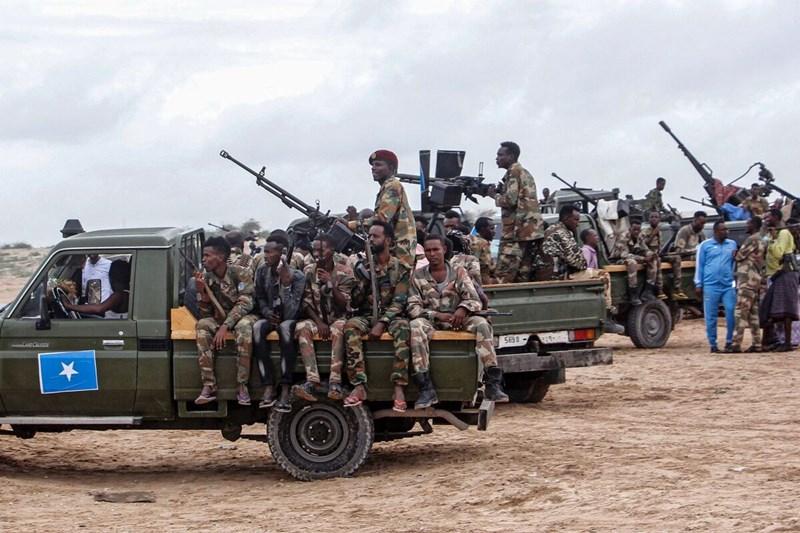
At least 3,500 AU soldiers killed in fight against Al-Shabaab in Somalia
The African Union [AU] may have lost thousands of peacekeepers in Somalia, insiders have admitted, in that revelation which comes at the time the Horn of Africa nation is planning the second assault against the militants who control large swathes of rural central and southern parts according to the United Nations.
In an interview with VOA, the head of the mission, which started in 2007, said Al-Shabaab has been a threat to both innocent civilians and security forces. Mohamed El-Amine Souef, who took over from Francisco Madeira, told the Investigative Dossier that at some point, the AU forces were not prepared because of the absence of a functional government.
“The troops were not well-prepared, and the administration was not even in Mogadishu. Many cases were not properly documented,” Souef said via the WhatsApp messaging platform.
Initially, the mission was known as African Union Mission in Somalia [AMISOM] but would later change the name to African Union Transition Mission in Somalia [ATMIS] in 2022. The 22,000-strong force is preparing for exit under the Somali Transition Plan [STP] with a timeline up to December 2023.
“The mission has documented around 4,000 casualties. According to the force officers who served in the mission, the casualties, including those disabled, can be as high as over 5,000,” Souef said. He said fatalities could be about 3,500 according to existing records.
Surprisingly, this is the first time the Union is revealing the number of casualties which is usually a secret between Troops Contributing Countries and the organization. He said he will prioritize the families of soldiers killed in Somalia for compensation, as some of them have not yet been recognized “because of a lack of funds.”
According to him, most countries contributed troops to Somalia due to proximity and for the sake of regional stability. Kenya, Ethiopia, and Djibouti are immediate neighbours who contributed with Uganda and Burundi also joining the team.
“This is not like a loan that we are giving to the Somalis,” he said. “I can say that we are reimbursing the Somalis because you may remember that Somalia is among the countries that got independence early in the ’60s, and they supported many African countries to get their independence. They supported many African countries in terms of training, in terms of education. So, I think Somalia deserves that, and we are willing to do so.”
Hussein Sheikh-Ali, the national security adviser to the president of Somalia, said the government recognizes the work of the AU forces.
“The Somali people are in their debt,” he said. “In Somalia, the areas the Somali government operated, the territories where progress has been established, they liberated with us, they protected with us, and they have lost lots of people.
“Therefore, we are grateful to them, but we want to repay them with a mission accomplished. This is why the Somali forces are fighting to eliminate al-Shabab,” Sheikh-Ali said.
Notably, Kenya Defense Forces [KDF] may have suffered some of the most unforgettable fatalities, including the Al-Shabaab raid at El-Adde Forward Operating Base which left over 200 soldiers dead in 2016. A year later, the KDF camp at Kulbiyow was also attacked by the militants leaving over 70 soldiers dead.
While other countries have also suffered this pain, the force has collectively driven Al-Shabaab out of critical towns including the capital Mogadishu and Kismayo, the regional administrative capital of Jubaland. Al-Shabaab has lost thousands of fighters in the process according to existing records.
Source » garoweonline





